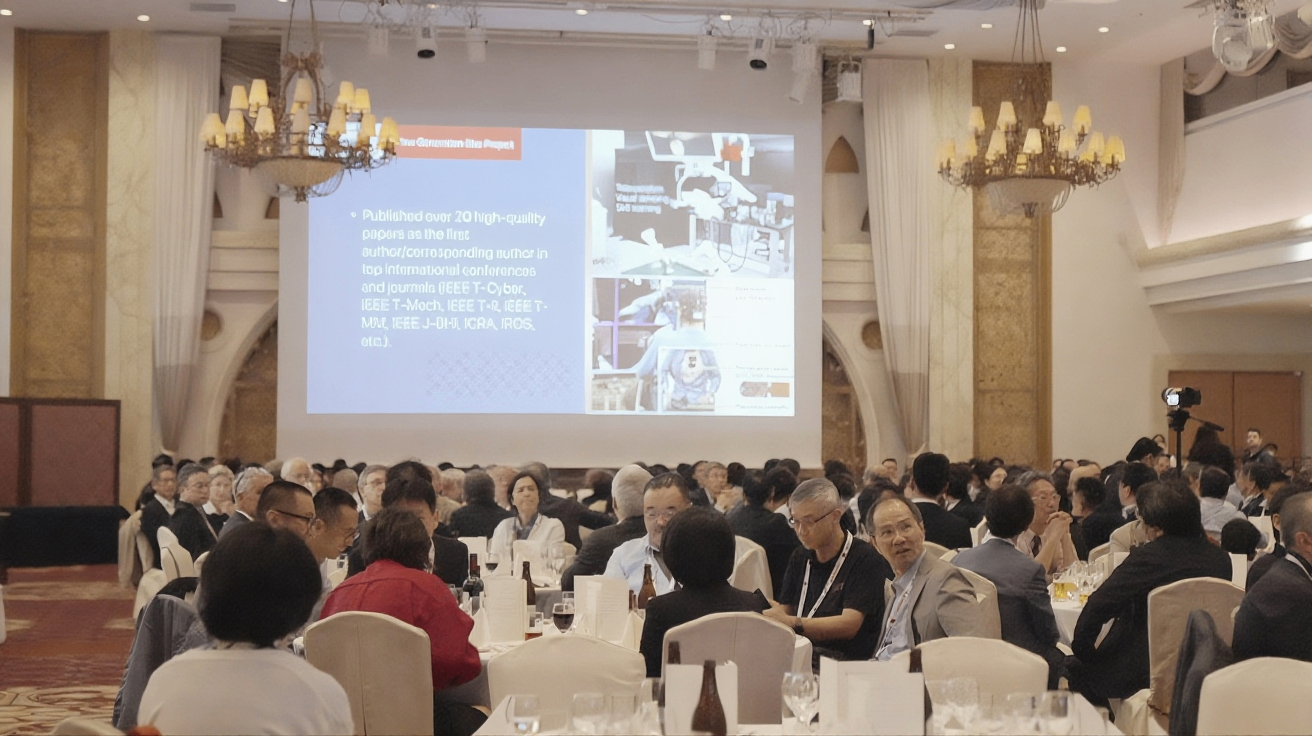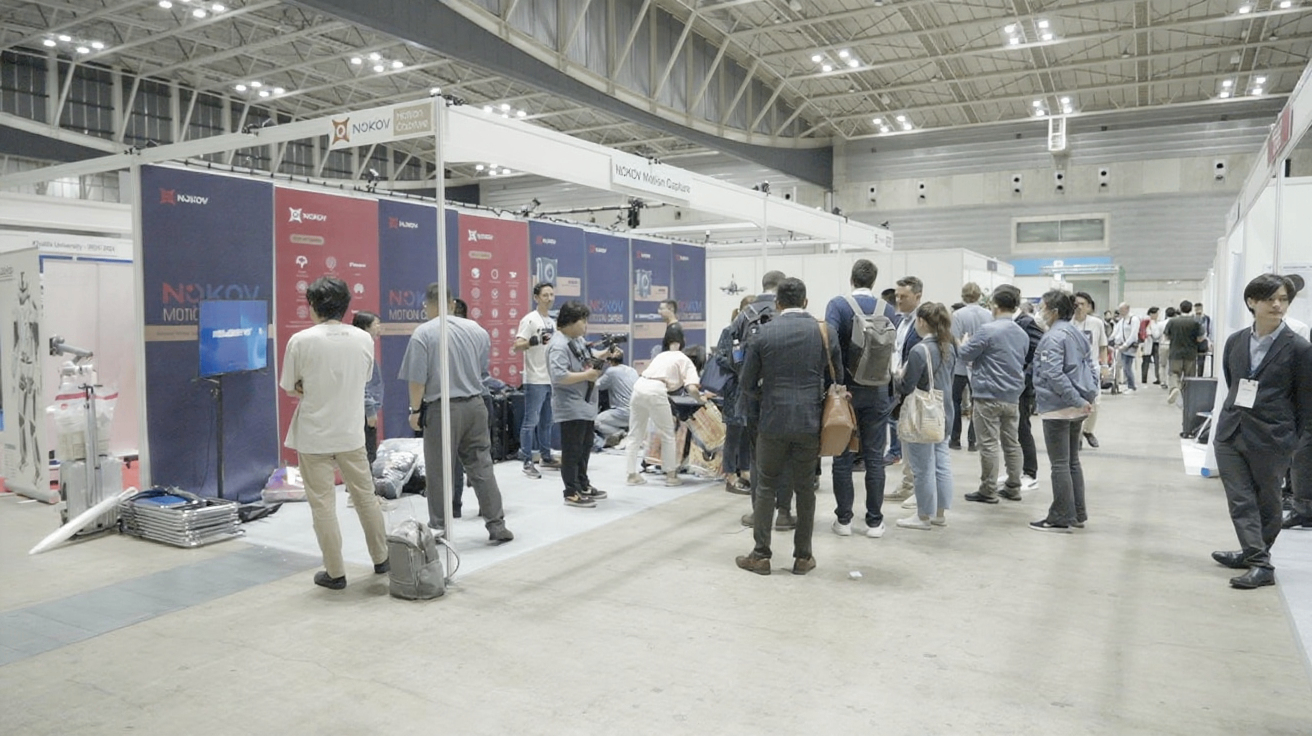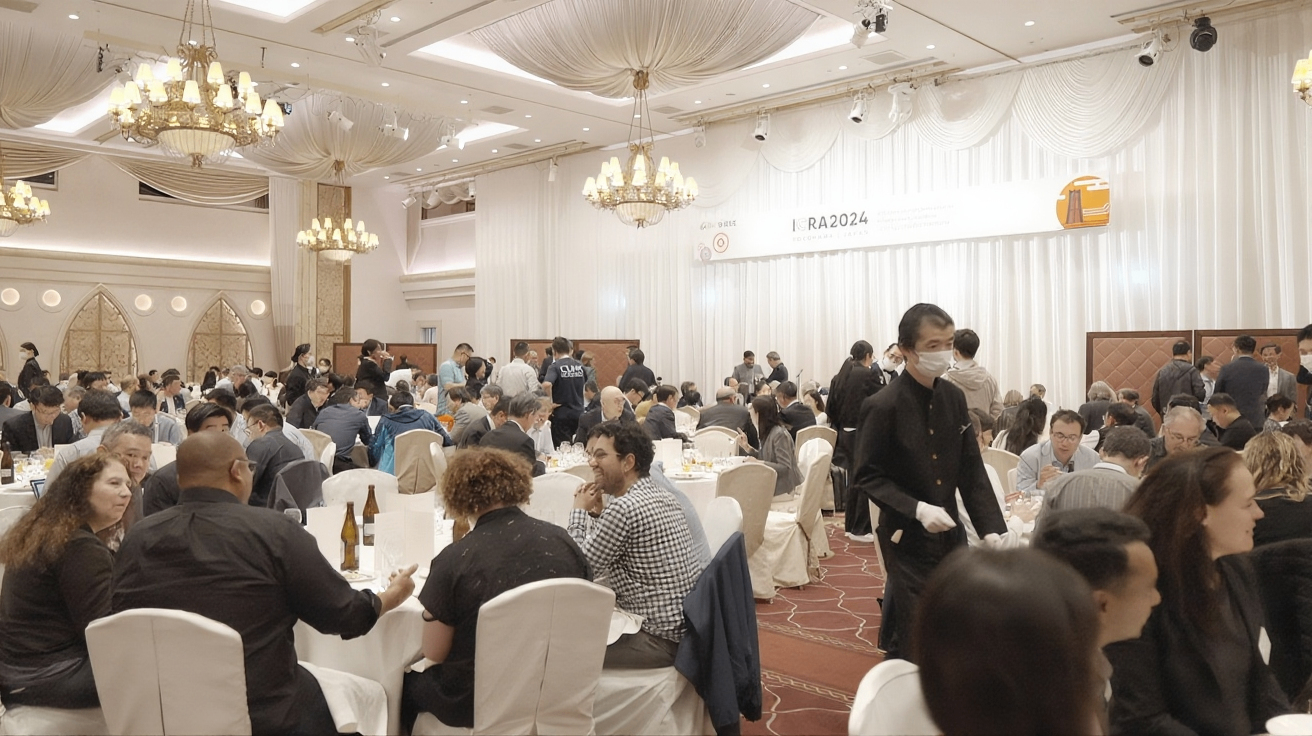How to Participate in Top Robotics Conferences: A Practical Guide to ICRA and IROS
Based on an in-depth interview conducted by NOKOV Motion Capture with Professor Wang Hesheng of Shanghai Jiao Tong University, Chairman of the IROS 2025 Conference.
ICRA and IROS are the two most influential robotics conferences worldwide. They serve not only as platforms for presenting research but also as arenas for academic exchange and industry engagement.
As Professor Wang emphasizes: “If you only attend to listen to talks, you miss the essence. The true value lies in communication and exchange.”
Academic Value: The most concentrated stage for presenting robotics research and sparking new ideas through face-to-face dialogue.
Networking Opportunities: Oral sessions, poster presentations, workshops, tutorials, receptions, and banquets all foster deeper connections.

ICRA 2024 VIP Dinner New Generation Star Project
Industry Connection: Exhibitions bring together leading companies and startups, bridging academic research and real-world applications.
Global Collaboration: Thousands of international participants provide fertile ground for long-term partnerships.

ICRA 2024 NOKOV Motion Capture Booth
Before the Conference
At IROS 2025, more than 80 workshops will take place. NOKOV is sponsoring 16 workshops and hosting live academic discussions to enhance engagement.
New Generation Star Project (NGSP): Co-organized by IROS 2025 and NOKOV, NGSP selects 20–25 outstanding young scholars each year. Awardees present their work at the Appreciation Dinner, receive certificates, and gain global exposure through promotional videos.
Learn about NGSP:
ICRA2024 New Generation Star Project
Submission & Schedule: ICRA is held in May (submissions ~September), IROS in October (submissions ~March). Plan early, prepare papers and videos carefully.
Get Familiar with the Agenda: Both conferences run about five days and include workshops, plenaries, competitions, and exhibitions. Use the official app or program book to plan your time.
Practical Materials: Prepare papers, posters, and slides in the official format. For posters, bring flyers or digital displays to attract attention.
Pre-Conference Activities: Engage in pre-ICRA/IROS workshops and events. These are great for building connections before the main sessions.
Workshops and Tutorials
Learn more: IROS 2025 Workshops & Tutorials
Workshops: Dive deep into hot topics with leading experts.
Tutorials: Offer structured learning on fundamentals and the latest advances.
For young scholars, these sessions are invaluable opportunities to broaden knowledge and connect with experts.
Plenary and Keynote Sessions
Don’t miss these carefully curated talks—they highlight cutting-edge trends and the future direction of robotics.
Field-Specific Sessions
Focus on sessions aligned with your research for technical discussions and to meet peers in your specialty.
Flexible “session-hopping” allows you to explore multiple topics and arrange one-on-one meetings.
Breaking the Ice
Casual small talk works: ask about research interests, local food, or impressions of a keynote.
You don’t need to stick to academic topics—simple conversation builds rapport.
Natural Social Settings
Welcome Receptions: Ideal for initiating conversations.
Banquets: Sit-down dinners encourage deeper dialogue.
Coffee Breaks: Casual settings to ask detailed questions or introduce your research.

ICRA 2024 VIP Dinner
Academic Conversation Starters
In sessions, ask about technical details, then share your own work.
In poster sessions, request explanations of specific elements—it’s the most natural academic icebreaker.
As Professor Wang reminds: “Everyone is an expert in their own area. Don’t be afraid to start a conversation—leading scholars are approachable.”
Attending ICRA and IROS is more than presenting a paper—it’s about learning, networking, and collaborating. From workshops to banquets, each interaction opens doors to new ideas and opportunities. With initiatives like NGSP and active sponsorship, NOKOV is proud to support scholars and industry professionals at IROS 2025 in Hangzhou. See you there!
Q1: How can I network effectively if I’m attending for the first time?
A1: Start with simple academic questions like “Which area do you work in?” or “What did you think of the last talk?” These open the door to deeper conversations.
Q2: How should I prepare a poster?
A2: Follow the official template, but consider adding a short video loop or slideshow on a tablet to make your work stand out.
Q3: What if I ask a wrong question in a session?
A3: There are no wrong questions—asking is part of learning. If you feel nervous, continue the discussion during coffee breaks in a more relaxed setting.
Q4: Is online participation just as valuable?
A4: Online attendance offers access to talks and papers, but it lacks the face-to-face interactions that create real academic and industry connections. Whenever possible, attend in person.